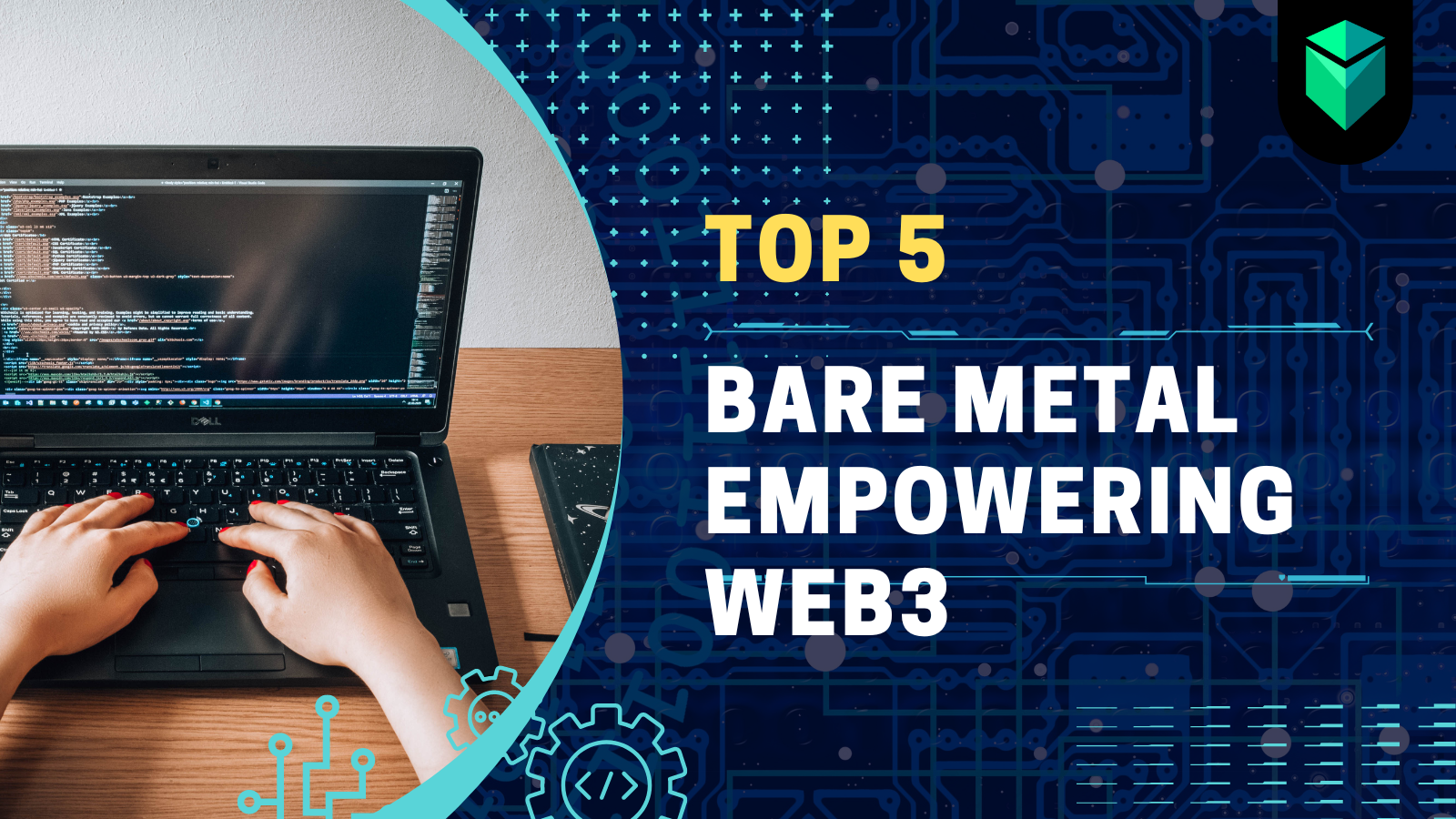Choosing the Optimal Bare Metal Server Solution for Web3
As the Web3 landscape continues to evolve, it brings with it a need for robust, scalable, and secure infrastructure. Web3, characterized by decentralized applications (dApps), blockchain technology, and the broader vision of a user-owned internet, demands infrastructure solutions that can support its unique requirements. Among these, bare metal servers stand out as a premier choice. Here’s what makes the best bare metal server solution for Web3 applications.
1. Performance and Resource Control
Bare metal servers provide dedicated hardware resources, offering superior performance compared to virtualized environments. For Web3 applications, which often require high computational power for tasks like blockchain processing, smart contract execution, and data validation, having direct access to hardware without the overhead of virtualization is crucial. The best bare metal servers come with powerful CPUs, ample RAM, and high-speed SSD storage, ensuring that your Web3 application runs efficiently and can handle high transaction throughput.
2. Scalability
Scalability is essential for Web3 applications due to unpredictable growth and usage patterns. A top-tier bare metal server solution should offer seamless scalability options, allowing you to add or remove resources as needed. This flexibility is vital for managing the load during peak times and scaling back during off-peak periods, thus optimizing operational costs.
3. Network Connectivity and Latency
Low latency and high-speed network connectivity are critical for Web3 applications, particularly those involving real-time data processing and transaction validation. The best bare metal server providers offer robust network infrastructure with multiple high-speed connections, low latency routing, and advanced DDoS protection. This ensures that your Web3 application remains responsive and resilient against network threats.
4. Security
Security is paramount in the Web3 ecosystem, where data integrity and privacy are non-negotiable. Bare metal servers provide an added layer of security by isolating your infrastructure from other users. Top providers implement advanced security measures such as hardware-based Trusted Platform Module (TPM), secure boot, encrypted drives, and regular security audits. These features protect against a range of cyber threats, ensuring the safe operation of your Web3 application.
5. Customization and Flexibility
Every Web3 application has unique requirements. The best bare metal server solutions offer extensive customization options, allowing you to configure the hardware and software environment to match your specific needs. This includes choosing the operating system, storage configurations, and network settings. Such flexibility ensures that your infrastructure is tailored to optimize the performance and functionality of your Web3 application.
6. Support and Management
Reliable support and management services are crucial for maintaining uptime and resolving issues promptly. Leading bare metal server providers offer 24/7 support with knowledgeable staff who understand the intricacies of Web3 applications. Additionally, managed services can offload routine maintenance tasks, such as updates and backups, allowing you to focus on development and innovation.
7. Cost Efficiency
While bare metal servers might seem more expensive upfront compared to virtualized solutions, their cost efficiency becomes apparent when considering the performance benefits, reduced latency, and enhanced security they offer. A good provider will offer transparent pricing models, potentially with pay-as-you-go options, to ensure you only pay for what you use. This helps in optimizing the budget while ensuring the infrastructure can scale with your needs.
8. Compliance and Data Sovereignty
For Web3 applications dealing with sensitive data, compliance with regulatory standards (like GDPR, HIPAA, etc.) is non-negotiable. The best bare metal server solutions ensure compliance through robust data handling policies and provide data sovereignty options, allowing you to choose server locations to meet regional data protection regulations.
Conclusion
Choosing the right bare metal server solution for Web3 involves evaluating factors such as performance, scalability, network connectivity, security, customization, support, cost efficiency, and compliance. As Web3 continues to grow, the demand for dedicated, high-performance infrastructure will only increase. By selecting a bare metal server solution that excels in these areas, you can ensure that your Web3 application is well-equipped to meet the challenges and opportunities of the decentralized future.


